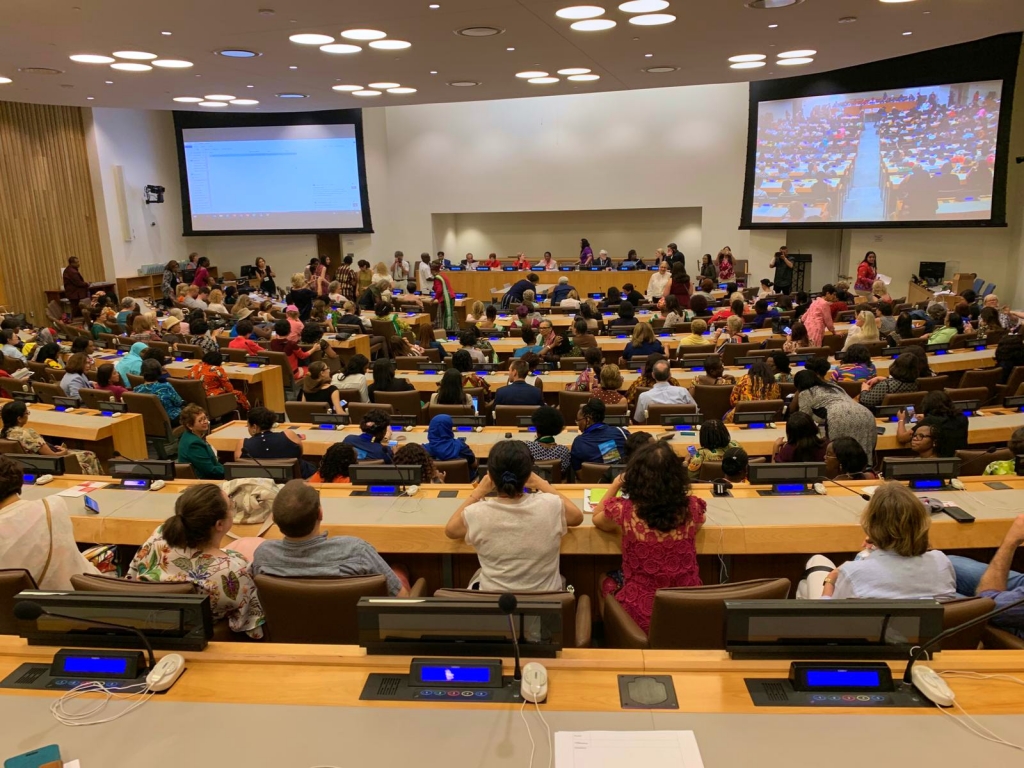
Women at the UN Special Event © Desiree Yap
Report written by Dr Madhura Naidu, VMWS Secretary and ICU Registrar
The Medical Women’s International Association (MWIA) was founded in 1919, when a group of medical women from various countries came together in New York City to have dinner and discuss issues pertaining to their medical practice and their lives. Following that, every three years, the MWIA has met to discuss professional and personal issues, as well as maternal and child health, and human rights. Over the years, the MWIA has grown, with more countries joining the organisation. The MWIA is now divided into 8 regions, from the North American region to the Western Pacific region (of which Australia is a part). A hundred years later, the MWIA has come full circle, holding its Centennial Congress in New York City!
As a member of the Victorian Medical Women’s Society (VMWS), I am a member of the Australian Federation of Medical Women (AFMW) and consequently, the MWIA, and as such, I was eligible to attend. This was my first international medical women’s conference. So, what did I learn?
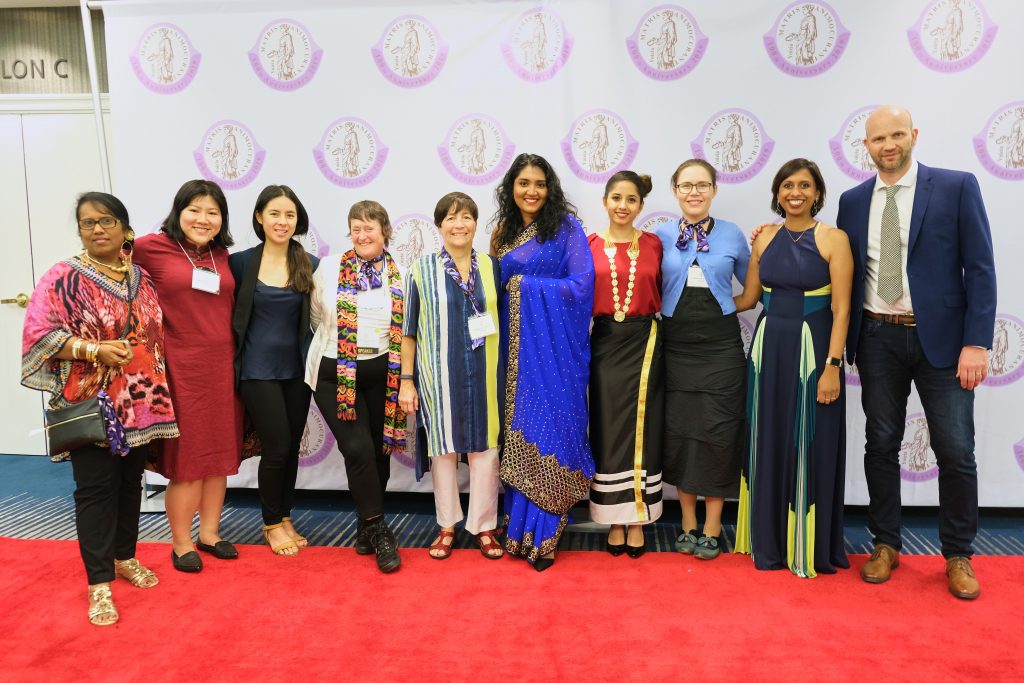
Australian delegates at the Centennial Gala © Madhura Naidu
1. When women come together, it’s a party.
Oh yes. Ladies, we know how to party. And I’m not even referring to the young women. Case in point: the group of Indian delegates, many of whom were above the age of 60, who performed on stage at the Gala dinner to some fresh Bollywood hits! I sometimes forgot these women were doctors. You know – serious, white coats, breaking bad news to patients, fighting for gender equality, superwomen doctors. Yes, we are all of that, but everyone was also there to have a great time. I’ve honestly never been to a conference where everyone was eager to be friends. Yes, friends! I am not talking about ‘professional networking’ here. Everywhere I went, from the lunch hall to the lobby, even in the lift (!), women were immediately friendly, keen to initiate conversation, and there were no forced formalities. They were genuinely interested in forging connections, and the depth of collegiality and camaraderie was both refreshing and heartening. I’m an introvert, but I came away with several friends from all over the world.
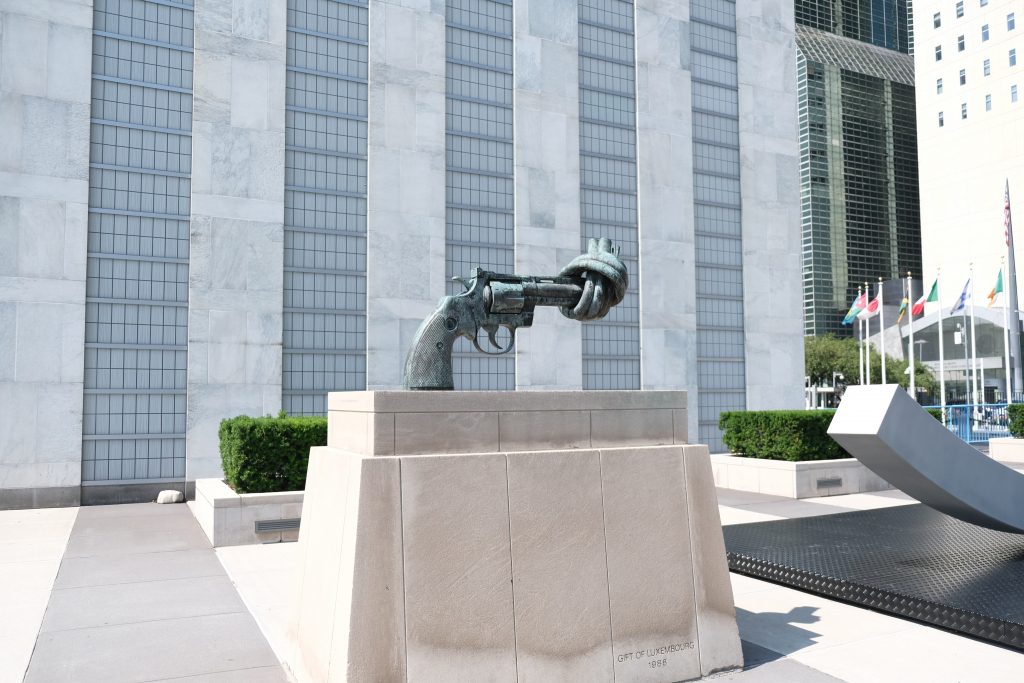
Inside the UN – sculpture entitled ‘Non-violence’ © Madhura Naidu
2. We have the same problems, even when we are 10, 000 miles apart.
Yes, we talked about serious issues too, like sexual harassment and bullying, which, let’s face it, are time immemorial. One doctor from Georgia (the country) talked about how she felt so isolated, being bullied by her superiors and being subjected to snide comments of a sexual nature, only to discover online that women from other countries were experiencing the exact same issues! In fact, she found an online article that had been published in an Australian newspaper. At that moment, she said, the isolation disappeared. She realised she was never alone, that women from other countries were facing similar problems too. A talk about the challenges of balancing work and parenting in Hong Kong received nods of agreement from all of the other women in the room (there were attendees from over 40 countries at the Congress). And even gender bias in medicine, and how it affects patients in Italy, could be extrapolated to the situation here at home too.
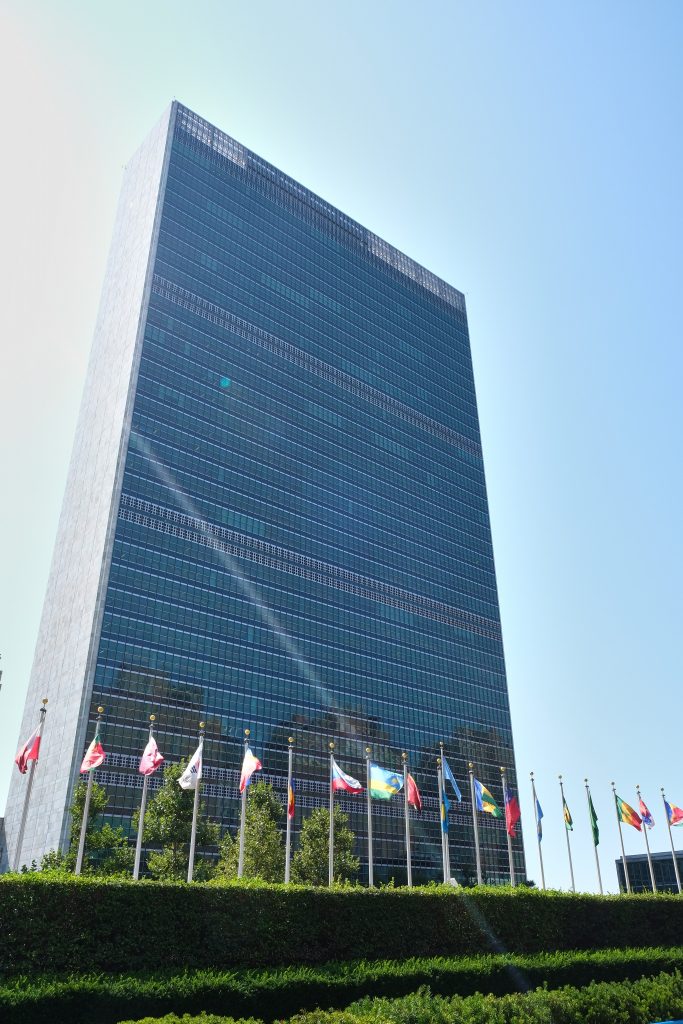
3. The United Nations is incredibly cool.
I had the opportunity to visit the United Nations (UN) headquarters for a special event discussing women’s health and its impact on the Sustainable Development Goals (SDGs) with a panel of dignitaries. The panel included the permanent representatives to the UN from Sri Lanka and Trinidad & Tobago, the UN Conference on Trade and Development (UNCTAD) chief, the Organisation for Poverty Alleviation and Development (OPAD) CEO, even a NASA scientist (Dr Camille Alleyne) and philanthropist Mr David Roosevelt (grandson of Franklin and Eleanor Roosevelt)! Being in such inspiring company brought home just how personal an impact I am potentially able to make on the global stage. How? The MWIA works very closely with the UN and the World Health Organisation (WHO). Resolutions passed by MWIA impact upon resolutions made by the UN and WHO, which in turn influence governments worldwide. Each member country of MWIA is able to vote on these literally game-changing resolutions, and as a member of VMWS (and as such, AFMW), I (and YOU) get to make a personal impact on the global stage.

Australian delegates showcasing contribution to MWIA collage, with Western Pacific Past Vice President Dr Cissy Yu from Hongkong © Madhura Naidu
4. We need to mobilise more of us to make a greater impact on our society
When you bring over a thousand women together to share creative solutions to common problems, the resulting empowerment and momentum to push forward is palpable. As Gloria Steinem, the keynote speaker of the Congress (and a personal role model of mine that I got to meet in person, yay me!) said, we should not be reluctant to engage in the greater conversation surrounding us, women. Our health. Our bodies. Our rights. Our needs. Our wants. We need to make it personal. And look, it’s not hard to start at the local level. There are over 12, 000 female medical practitioners and over 400 female medical students in Victoria. We can invest in women and girls in science. We can take more leadership positions. We can mentor, be mentored, and encourage each other to go forward. We can learn to be more confident. We can join the Victorian Medical Women’s Society (and as a result, the MWIA) and contribute to our high school, our university, our hospital, our medical practice, our fellow colleagues, and our patients! I can understand first-hand how issues such as gender inequity, or women’s health rights, may not be a problem that is immediately noticeable to a first-year medical student, or a brand-new intern. However, attending the MWIA Centennial Congress was a wake-up call of the noisiest fashion – we cannot live in our own little fishbowl, we need to expand our thinking and our horizons. If Gloria could do it (along with all the other women who came before us, and fought for the rights we are enjoying now), so can we!
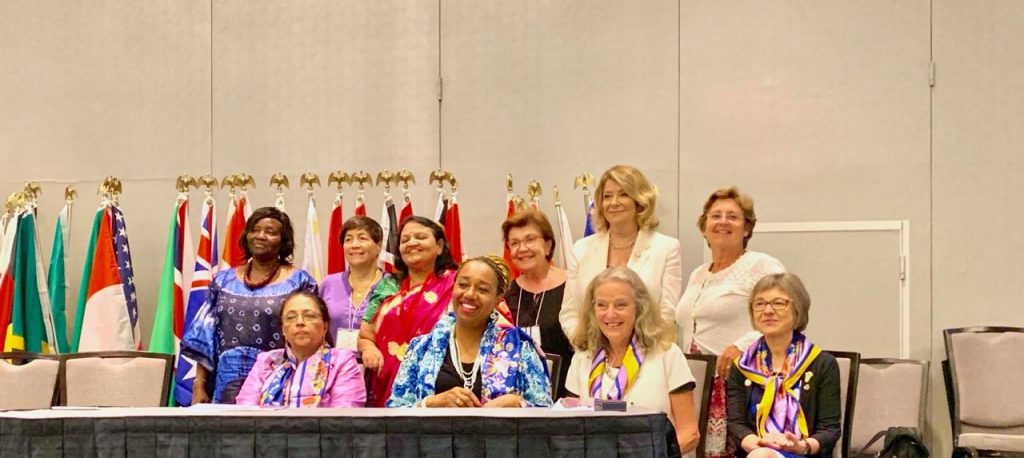
5. Social media is here to stay. We need to get on top of it
In this day and age, most of us have some sort of presence online – we have an account on a social media platform, we have a website, or we feature as part of a website. What we may not realise is that the power of social media is vastly underestimated. The hashtag #MWIA100 on Twitter reached over a million people on Day 1 of the Congress alone. On a more personal level, our patients consume tons of information online and we compete with Dr. Google (or Facebook) on a daily basis (don’t tell me you’ve never had a patient tell you something they read online that ‘must be true’). The social movements of #MeToo, #TimesUp and TimesUpHC (Time’s Up Healthcare) have gained humongous traction all over the world, even though they originated in the USA. It has enabled Japanese medical women to stand up for their rights and cast a light on their unfair medical university practices, for example. We cannot remain separate from social media any longer. As medical women, we should be using social media to our advantage. We can provide accurate information to patients, shed light on and personalise issues affecting medical women to the general public, discuss issues with fellow colleagues (and even advance our career in doing so), and also, inspire future medical women.
And that’s the greatest take-away from the Congress: We inspire each other. We empower each other. We have a voice. We should use it.
References:

